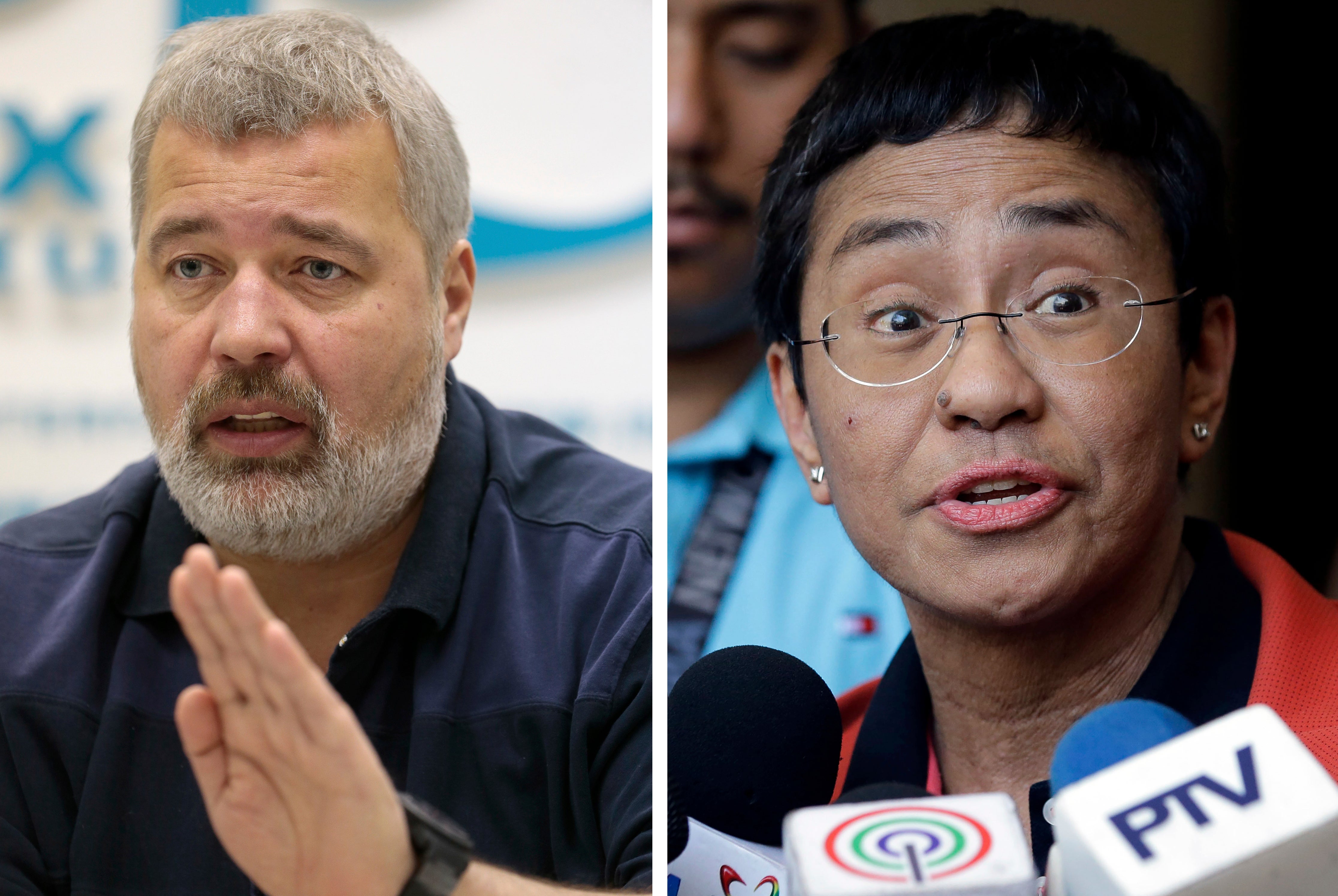This year’s Nobel Peace Prize is a poignant reminder that without a free media there can be no real democracy
Editorial: Maria Ressa and Dmitry Muratov are deserving laureates who remind us of the sacrifices many around the world make in the pursuit of truth

The organisers of the Nobel Peace Prize showed some welcome creativity and useful shrewdness in giving this year’s award to two brave journalists fighting for press freedom in hostile conditions – Maria Ressa from the Philippines and Dmitry Muratov, based in Russia.
The Norwegian Nobel Committee has acknowledged without a free media there can be no true democracy, and without democracy there is more likely to be war. They have shown courage in speaking out for the liberties taken for granted in the west, and been persecuted for it. It is only right that they, and also on behalf of journalists around the world, should be recognised for the sacrifices they have made.
It takes guts to stand up to the likes of Vladimir Putin and Rodrigo Duterte. They have set a formidable example to the trade of journalism – just as other writers who put themselves in danger did. The prize, informally, is also a reminder of those who have been murdered for seeking the truth – Daniel Pearl in Pakistan, James Foley in Syria, Daphne Caruana Galizia in Malta and Jamal Khashoggi at the Saudi consulate in Istanbul, Jefferson Pureza Lopes in Brazil and Marie Colvin, seemingly targeted as Bashar al-Assad's forces bombarded Homs in Syria, are other prominent examples. There are of course many more who have been killed, and countless others who are beaten, intimidated or imprisoned in the pursuit of truth.
The Independent's Journalism Is Not a Crime campaign is based around the importance of a free media to society – journalists need to be protected at a time when press freedoms are being eroded around the globe.
Now, with the Nobel Peace Prize in their hands, Ms Ressa and Mr Muratov are rather safer – at least for the time being – from the unwelcome attentions of their respective governments thanks to having achieved global recognition for their work. Indeed, a Kremlin spokesman, presumably with a straight face, praised Mr Muratov because “he persistently works in accordance with his own ideals, he is devoted to them, he is talented, he is brave”. We may be sure that that is not in reality the way they view Mr Muratov as editor of the Novaya Gazeta, a newspaper with a connection to The Independent (Alexander Lebedev, the former publisher and a present shareholder of Novaya Gazeta, is the father of Evgeny Lebedev, a major shareholder in The Independent). Well within living memory, Anna Politkovskaya, a journalist for Novaya Gazeta and a Putin critic, was murdered.
Ms Ressa won her award for exposing “abuse of power, use of violence and growing authoritarianism in her native country, the Philippines”. She made it her business to report the truth about President Duterte’s war on drug gangs, misogyny and human rights abuses through the news site she co-founded, Rappler. Ms Ressa has faced a number of legal cases – which she has labelled politically motivated, but has remained defiant and resident in her own home throughout.
Putin and Duterte are typical examples of the kind of aggressive populist nationalists who have come to power across the world. They have many things in common, not least a dislike of criticism and any unflattering reports of their activities. They have no interest in truth, and not much in peace.
They seem contemptuous of international opinion. Yet, they wish to be on the global stage, and they need other countries to trade and do business with them. International opinion, where it reflects genuine concerns and threatens their material interests and grip on power, actually means more to them than they care to admit.
That is why the award of the Nobel Peace Prize to Ms Ressa and Mr Muratov is such a joyful moment, but a poignant one too as we reflect on the lives lost by reporters across the world.



Join our commenting forum
Join thought-provoking conversations, follow other Independent readers and see their replies
Comments